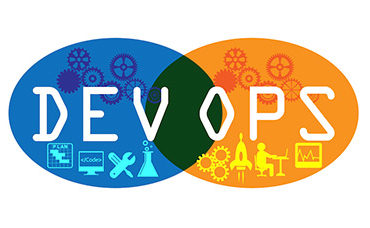DevOps Survey: IT Teams Must Be Flexible

via Shutterstock
The rise of hybrid IT infrastructure and, with it, expanded use of cloud and micro- services along with containers to deploy distributed applications is taxing IT staffs and driving requirements for greater automation in areas such as compliance, according to a new vendor survey.
The poll of more than 1,500 IT managers released this week by DevOps specialist Chef Software underscores the steady shift to hybrid infrastructure, and the reality that "workloads are increasing faster than headcount."
Along with automation, the survey concludes that the best way to tackle the hybrid IT challenge is forming "cross-functional teams" that are "likelier to move faster, have greater resiliency and adopt new technologies faster than traditionally structured teams."
The survey found that IT workers must adjust to the new hybrid IT reality and soaring workloads through efficiency improvements while squeezing more production out of existing resources.
The challenges are daunting, the survey found. Sixty-three percent of those polled agreed that IT workloads are burdensome, while only 44 percent said they expect to see their development teams expanded. "Perhaps the most telling statistic is that almost half (47 percent) expect to see the size of their operations teams remain stable or decrease in size, despite the increasing workloads," George Miranda, Chef's product marketing director, noted in a blog post.
Much of the increased IT burden stems from "unplanned work," the Chef survey found. The biggest time sink was deployment failures (42 percent) along with errors caused by "unmanaged change." Chef and other IT automation vendors point to these findings as evidence that infrastructure managers need to adopt new practices that anticipate these problems while helping to bridge the gap between workloads and IT personnel.
Nearly two-thirds of those surveyed said they have regulatory compliance requirements. Hence, Chef argued that compliance is one area ripe for automation tools that could help enforce application and data security.
"Automated compliance testing appears to be a mostly untapped opportunity to both increase security and stay ahead of the expanding gap between workloads and headcount," Chef's Miranda argued.
Meanwhile, with pressure growing on IT teams for "continuous delivery" of distributed applications, two-thirds of survey respondents told Chef they cannot deploy changes to production workloads on demand. Almost half said they need at least a week to push through changes. Moreover, the gap between an initial software deployment and running that code in production often extends beyond a day.
The Chef survey found the embattled IT teams are searching for ways to reduce deployment time so they can move on to other problems such as service failures.
Among the conclusions drawn from the survey results was that IT automation will likely rise, with an emphasis on deployment workflows. "Maintaining flexibility is not only an essential part of any solution that manages our hybrid infrastructure and applications, but teams that promote that same hybrid approach in experience lead the pack when it comes to addressing these challenges," Miranda noted.
Related
George Leopold has written about science and technology for more than 30 years, focusing on electronics and aerospace technology. He previously served as executive editor of Electronic Engineering Times. Leopold is the author of "Calculated Risk: The Supersonic Life and Times of Gus Grissom" (Purdue University Press, 2016).











